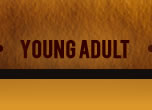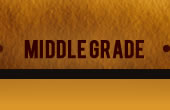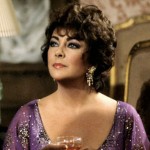Today’s true confession: I used to watch GENERAL HOSPITAL.
I got hooked as a kid in the late 70s/early 80s when the Cassadines attempted to freeze the world with the Ice Princess. (Mom was watching it and it had a sci-fi angle. How
could I not watch?) Over summer vacation, I continued to watch it off and on, even when the sci-fi like stories stopped, into the early 90s. I’m stunned to learn that many of the characters that I watched back then are still on the show today (some even played by the original actors). Haven’t tuned into GH for quite some time, although they’ve tried their best in recent years to lure me back (Robert Scorpio and Anna Devane came back?!?).
But soap operas are dying. The last few years have seen these daytime staples, some that started as radio programs back in the ‘30s, get picked off one by one. ABC recently announced that two of its juggernauts, ALL MY CHILDREN and ONE LIFE TO LIFE, are being cancelled, leaving GENERAL HOSPITAL as the sole soap (for how long, no one knows). NBC long ago vanquished most of their line-up (DAYS OF OUR LIVES remains) while CBS clings to THE YOUNG AND THE RESTLESS and THE BOLD AND THE BEAUTIFUL (again, no one knows how long they’ll last).
What does this have to do with anything, Brian?
I think it’s very telling. It’s the clearest evidence there is that storytelling tastes evolve. This is absolutely true of individuals.  If it wasn’t , we’d all still be reading picture books exclusively (not that there’s anything wrong with adults reading picture books). As we mature, our tastes change. We require different sophistication in storytelling.
What’s interesting about the demise of the soaps, in my mind, is how it demonstrates this can happen across a culture as well. In fact, I think if you were to look at TV writing by decade, it would be very easy to see how the way stories are told has changed. Compare a sixties sitcom (I DREAM OF JEANNIE, let’s say) with something more contemporary (RAISING HOPE). We see a lot less slapstick today (although sometimes, in the case of the BBC show MIRANDA, it still works). I think the last time we had a sitcom dealing with some sort of magical premise was in the eighties (I could be wrong; it may have spilled over into the early 90s). Nowadays, magic seems reserved for drama. Strangely, our sitcoms have become more grounded in reality.
I had a bit of a rude awakening recently when I had a chance to stream some episodes of SCARECROW AND MRS. KING, a show from the 80s that I LOVED. Let’s just say it didn’t stand the test of time. I often think of 80s TV as high on concept with very archetypal characters. Plot holes in the writing and implausible situations were irrelevant as long as the PREMISE was intriguing.  A show like SAMK wouldn’t fly today on the sheer implausibility of the government hiring a scatterbrained housewife to regularly work with one of their top agents on matters of national security. No one would buy that today.
Does this mean our tastes have become more sophisticated? Not really. Look at GLEE. In fact, I might have expected a resurgence in the popularity of soaps, given the success of GLEE, which shares many of the same storytelling elements as the soaps (extreme melodrama, fly-by-night relationships…maybe soaps can be saved by some in-your-face musical numbers).
While the demise of soaps is sad in that it marks the end of an era, it’s not really surprising. Art is far from a constant. Just as the tastes of viewers (or readers) have changed, writing styles have evolved over the years as well. It’s not always immediately obvious. Every ten years or so, some writer, feeling vilified, attempts to prove that editors today don’t know what they’re doing. They take something like JANE EYRE, submit it as their own work, then gloat as it gets rejection after rejection and claim that editors are stupid. But, really, the editors are responding to the current market. JANE EYRE, if it didn’t already exist as a classic, wouldn’t sell in today’s market. The tastes of readers have changed. And so has the way we write.
We can argue ad nauseam as to whether or not this is a good thing. You might say that things like TV and movies have fed society a diet of easy, making it harder to appreciate the lush prose that once was a hallmark of good writing. Maybe. In the end, I don’t think there’s any way to fight it.  I think it can be a tricky balance for a writer, trying to write what they want but also keeping up with the times.  Does that mean you have to rewrite everything you’re doing and mimic the style of whatever’s at the top of the New York Times Bestseller list? Absolutely not. If anything, it’s more important than ever to be a unique voice, shouting against the din.  But it’s also important to have a strong understanding of where writing has been and where it’s at.  It’s often hard to predict where it’s going. I think that’s because it’s up to those unique voices to set the course. To be something unlike anybody’s seen and to be prepared to go with the flow. Daytime soaps kept their heads above ground as best as they could. In the end, the formulas that once made them successful are what brought them down.  The key to having a successful career as a writer? The ability to adapt.










